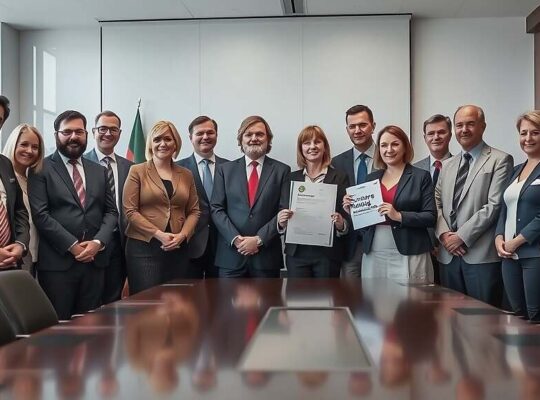The left wing of the Social Democratic Party (SPD) within the German Bundestag is fiercely defending the planned CO2 fleet emission standards that effectively prohibit the sale of new gasoline and diesel vehicles from 2035. A position paper released by the parliamentary left (PL) unequivocally states that any deviation from this prohibition would represent a “climate-political error, economically shortsighted and socially unjust.
The stance highlights a growing internal conflict within the governing coalition, pitting the SPD’s left flank against increasing pressure from the Christian Democratic Union (CDU), led by Chancellor Friedrich Merz. Merz has publicly advocated for the EU’s ban on new combustion engine vehicles to be reconsidered, arguing that Germany should not be “bound to this false prohibition”. His calls are predicated on concerns over the potential impact on German automotive industry jobs and investment, a narrative being amplified by the CDU.
However, the parliamentary left warns that backtracking on the 2035 ban isn’t a benign course correction, but a “risky relapse into old patterns of thinking”. Carmen Wegge, Co-Speaker of the parliamentary left, criticized the CDU’s positioning, stating that it sows uncertainty among employees and companies and undermines German competitiveness. Jakob Blankenburg, a member of the PL’s leadership, similarly warned that weakening the commitment to the ban damages Germany’s credibility in the fight against climate change and sends negative signals to the industrial sector. He emphasized that clear regulations are essential to secure investments, jobs and value creation within Germany.
The current “fleet emission standards” mandate an average CO2 emissions limit of 93.6 grams per kilometer for new vehicles registered in the EU, with a gradual reduction targeted to reach zero emissions by 2035. These standards are a cornerstone of the EU’s “Fit-for-55” package, a strategy designed to limit global warming to just above two degrees Celsius. Recent pronouncements from the International Court of Justice underscore the legal implications of exceeding the 1.5-degree Celsius limit, raising the possibility of states facing lawsuits for climate-related damages – a factor intensifying the political sensitivity surrounding the issue. The internal debate within Germany is not merely about automotive technology; it represents a fundamental clash over the country’s commitment to its climate targets and its role in the global effort to mitigate climate change.












